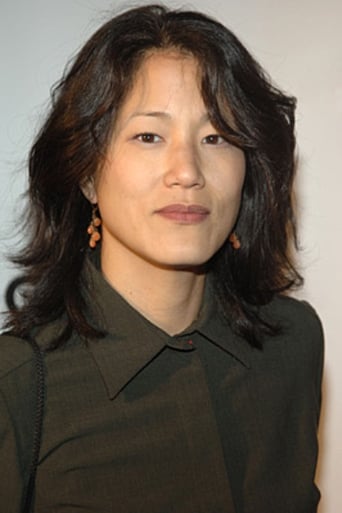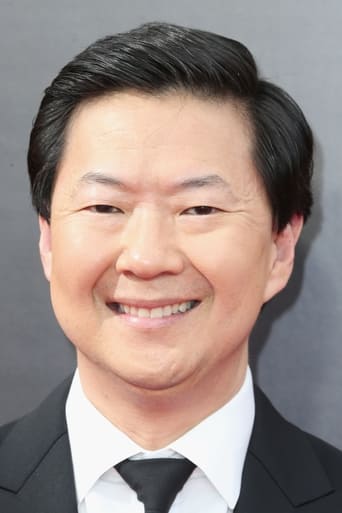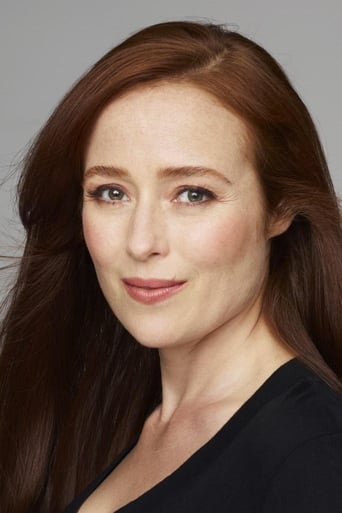Lucybespro
It is a performances centric movie
Prolabas
Deeper than the descriptions
Logan Dodd
There is definitely an excellent idea hidden in the background of the film. Unfortunately, it's difficult to find it.
Felix Meyenhofer
This is quite an intriguing take on the theme of the singluarity. What happens during uploading (transferring the consciousness to a new vessel)? In terms of the cognition, this work seems to reflect the latest advances in terms of the scientific work that has been done the last years. One of the key one of the findings being that the consciousness that we experience is tied to the body and their intertwined growing process. Studies of evolution, robotics and neuroscientists seem to converge on this idea. Enough of guessing the scientific Zeitgeist... What is astonishing about the movie is the fundamental level the theme is approached. Dance is important. It shows from the beginning to the end. And through the very nature of movement, the archaic, the everyday-things, those striving for that higher purpose will probably halt and think (if they see, and not just watch). This work puts great and visionary ideas in a very human context. This review is written with the movie still undigested, so it might sound a bit raw and weird. In any case it made quite an impression on me.
Analee Miranda
I have to be honest, "Advantageous" is intriguing but frustrating for the first hour. Part mystery and part Dystopian-sleeper-drama, the story moves at a snail pace but like yarn to a scarf the information in the first carefully woven scenes is vital. Set in a near-distant future with a nearly non-existent middle-class and where education and talent are no longer commodities, Gwen relies on her beauty and youth to barely hold on to her middle-class standing. As she faces the ever-constant ravages of time, with a child to support, and a past she's too ashamed to confront Gwen makes a desperate decision to try an experimental procedure in order to guarantee that her daughter Jules secures a spot in the elite class.I cannot emphasize enough the emotional roller-coaster that the film evokes in its last thirty minutes. The nature-nurture argument alone will keep your mind reeling as the closing credits roll but as a former foster caregiver and parent, I cannot discount the deep ache that I still feel over the interaction between Gwen and Jules in the last few scenes.Described as "animal connection" in the film, the fact that consciousness is inching closer to a scientific definition is challenged by writers Phang and Kim who decry that consciousness without soul is incomplete.As a mathematical physicist, however, I find the ending hopeful in that "time" seems to be the missing ingredient. Reminiscent of Maxwell's equation's, I find that just as the time-harmonic equations show a simple and basic universe of electricity and magnetism, the consciousness-soul equation may indeed have its own trivial time-harmonic consequences.I hope you will agree with me, though, that the movie has an optimistic end since the final interactions between Gwen and Jules reignite a soul-like spark that is different but connected nonetheless to the original. It is this type of soul that many adoptive parents and children share and it is this time-dependent ingredient that may signify the potential for a complete scientific definition of consciousness.I recommend "Advantageous" highly and give it a rating of 9 out 10. It is worth it to suffer through the slow-paced start to reach a thoughtful, surprising, and satisfying finish. I do warn you, however, that you need to enjoy or at least be intrigued by science at some level to be as enthusiastic about the film as I am.
Michael Oman-Reagan
This is great Sci-Fi. An indie film that really makes you think. Diverse, apocalyptic, and deals with capitalism, race, bodies, gender, technology and more in a captivating story. One of my favourite Sci-Fi films this year.One thing I really love is the total construction of a possible future culture, with all the attendant details. It worked so well! From language, to hints about water, and other implied situations or cultural change. Loved the subtlety! I also found it so refreshing vs. big-budget Sci-Fi that hits you over head with what's going on, then does an "explanation" dialogue for 10 minutes. This is a film for curious people, who like to think with cinema.
jayj-17577
The heroine, Gwen, is a spokesperson for a company that has invented a way to transfer a person's mind or consciousness into an artificial body. These bodies are, of course, healthy, young-looking, and attractive. The company advertises this as a solution for physical handicaps, and of course people who are getting old and losing their good looks, or who never were that good-looking, can be young and handsome or pretty.Then the company pressures Gwen to get one of these artificial bodies herself, because (a) she can then present herself as a satisfied customer; and (b) she's middle-aged, and they want a face that is young and pretty. Gwen doesn't want to do this because she feels she would be losing her identity.I don't think any of what I've just said is a spoiler. This all happens early in the movie and it's the premise for what follows. In fact -- and here's the big problem I have with this movie -- I think it would be almost impossible to write a spoiler for this movie, because nothing really happens. There's only one real "revelation" in the movie, and I thought it was pretty obvious, doesn't really change things that much. And one decision for the heroine to make: will she cave in and get the artificial body or not. And I won't say any more there to avoid spoilers.What this movie is really about is discussing how society only values women for their physical appearance and how women are pressured to conform. In my opinion, the message is repeated so often and is so heavy-handed that it just got tedious. It's not a story with social commentary. It's social commentary with a thin veneer of a story.Even the basic point the movie is trying to make gets muddled by side issues. The story starts out with the company's plan apparently being that they will fire her, then spread nasty rumors about her so she can't get a job anywhere else, so she'll have no choice but to come and beg for her old job back, and then they can tell her they'll hire her back only if she agrees to get the new body. This seems to me to be a rather dumb plan. Why didn't they start out by just asking her to do it? Maybe she would have enthusiastically agreed, and they would have gotten what they wanted without alienating their own employee. Why not make demands before firing her? What would they have done if they fired her and, despite their rumor campaign, she had gotten another job? I hate movies where people do something stupid for no apparent reason. They also throw in a side line about how the artificial bodies experience minor but constant pain. This adds a negative that just distracts from the theme of beauty and identity.Oh, and there's a curious sub-plot about how her mother disapproves of her for having an affair. We're clearly supposed to see the mother as being narrow-minded and judgmental. Then they show us how much unhappiness the affair caused her, the man, and the man's wife. So we as the audience are apparently supposed to see the affair as a bad thing -- but her mother was narrow-minded and judgmental for saying it was a bad thing. I didn't quite get the point there.The movie DOES raise an interesting question: If you could get a young, healthy, strong, good-looking body, would you do it? Or would you see it as taking away your identity. Personally, as an old man with medical problems, sure I'd do it, assuming I could afford it and there were no side effects. I thought that was a no-brainer, but when I asked my daughter she said she wouldn't. So there might actually be an interesting philosophical question in there.






